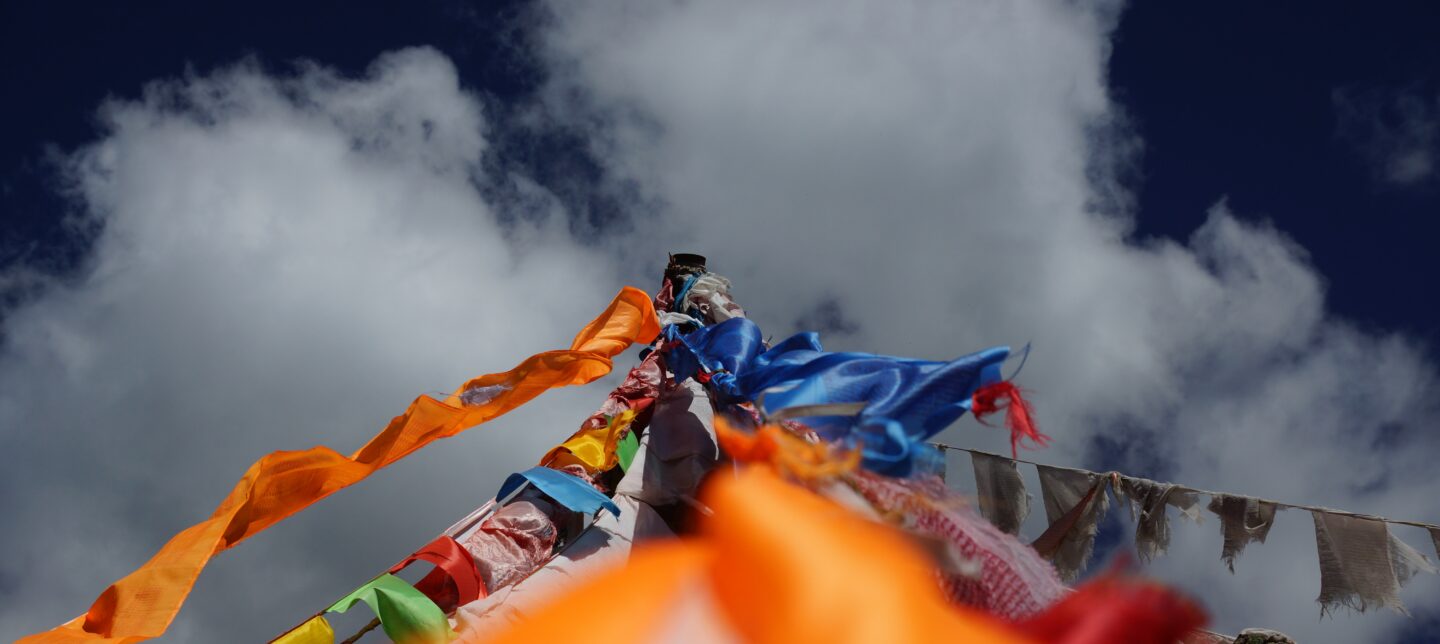Introduction
Yushu is a small, Tibetan Autonomous Prefecture in the Qinghai province with a population of 416,600 (93% Tibetan). It suffered from a magnitude 7.1 earthquake in 2010 (click to see more information), which is one of the reasons my mom decided to bring me to go visit and teach English in a local art school.
Getting There
Before the trip, I was very against the idea because the trip to the village was very tough. We had to take a bus with small beds for 10 hours, arrive at another county before someone picked us up and drive for another 4 hours. As a city kid (15 at that time), I thought there was no way I could endure that much.
However, the trip passed so quick that I realized I was much stronger than I thought. Despite complaining a dozen times a day before the trip, I never complained during the exhausting bus ride. When we arrived, we were greeted by the students and orange ribbons were put onto our necks, which is a Tibetan tradition. We lit a fire in the yard and talked with everyone, although I only listened because I was (and still am) an introvert.
The Art School
The school had about 20 students, one teacher and a doctor whose main job is to take care of everyone. The teacher and the doctor live (with their families) in separate houses and the students share a dorm room together. Their subject of learning is Thangka paintings (click to see more information), a very delicate paper painting which is usually composed of different Buddha figures. Each painting can take a few weeks or even months and their selling value is very high, around 5,000 to 20,000 CNY. Therefore, the teacher is fairly wealthy and the students have a very high earning potential when they become more skilled as they go along.
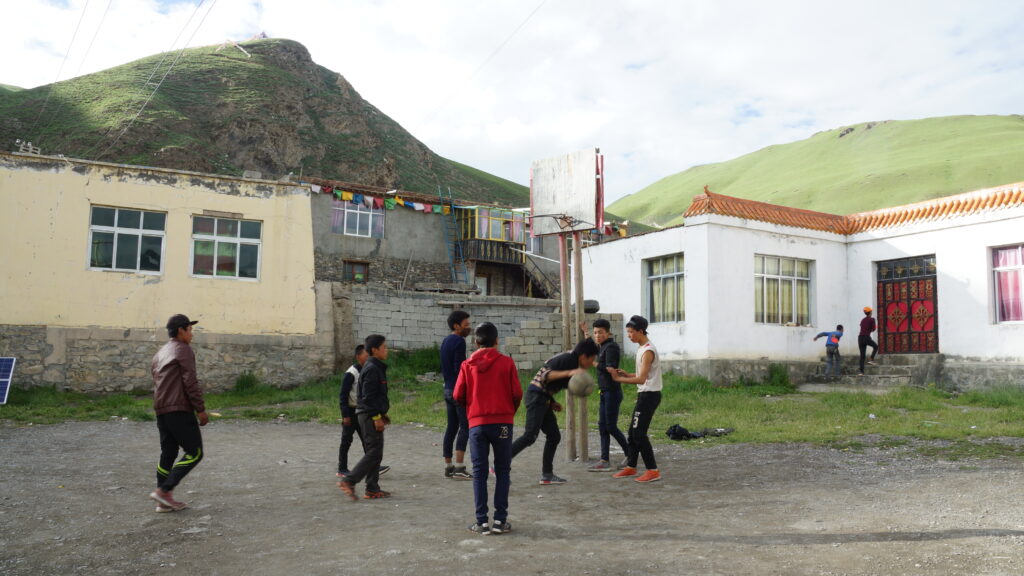
Photo of the School and Students Playing by Jerry Yao
When classes were finished for the day, the students either practiced painting or just relaxed. They also adopted a tradition from the British – afternoon tea. We would boil tea, ate fried pancakes (click to see more information) and chat.
Teaching English
The students took painting classes every morning, which left the afternoon for me to do what I came to do – teach English. We used a program called Rosetta Stone, which I still use to learn various languages like French and German. We just renewed our Rosetta Stone subscription before the trip, so the setting-up part was very straight forward. We simply downloaded the program, logged in, downloaded the language pack and started teaching (the school had Wi-Fi and computers, which were essential).
The subjects of learning included the following:
- Greetings
- Everyday objects
- Pronunciations
- Very light grammar due to the complexity
Visiting Nearby Places
There were other volunteer teachers too. The second day we were introduced to a couple – a Swedish man and his Chinese partner. We were all introduced by the same charity foundation ran by my uncle. Their job was teaching math and when we were free, we hung out and visited other parts of the county (usually with a few students). The county was surrounded by mountains, which we climbed every day. The air was incredibly fresh due to the low number of cars and other pollution sources.
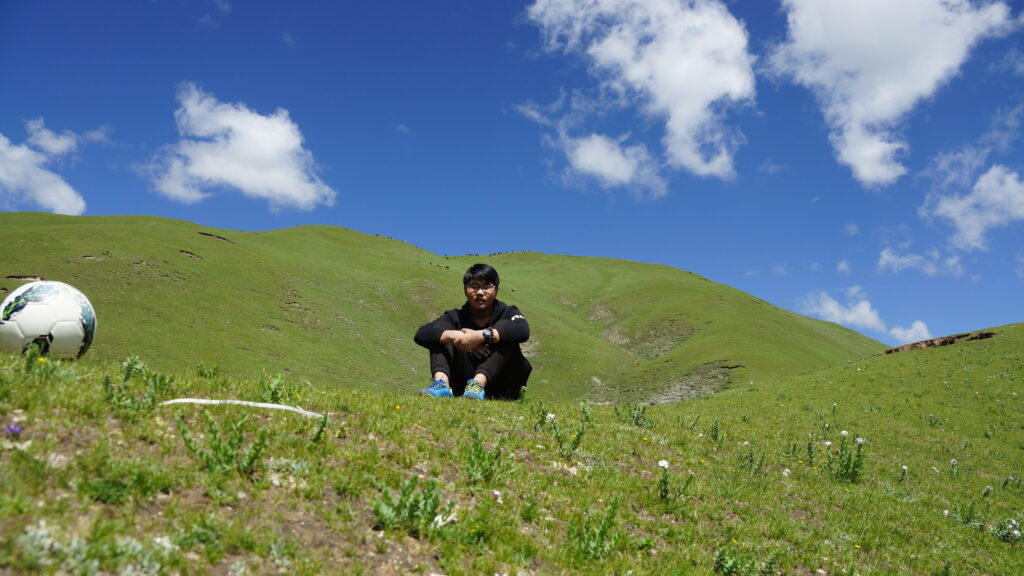
Photo of Me Sitting on the Mountain
Sometimes, the students would introduce us to some of their traditions like worshipping gods by throwing a special kind of paper. Sometimes, we just sat and chat. Time seemed like an allusion on the top of the mountains, and we could spend an entire afternoon doing nothing.
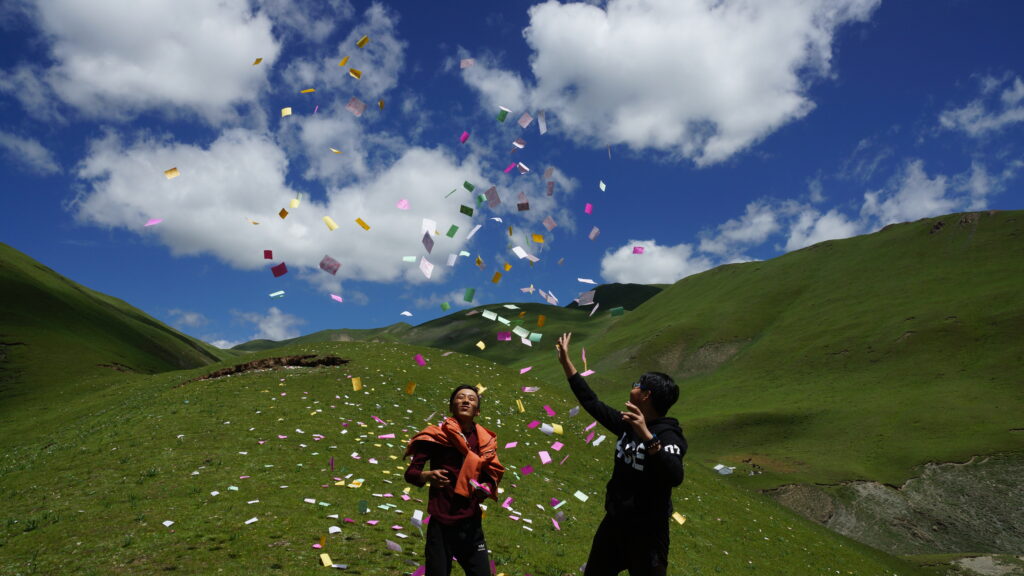 Photo of Me Practicing the Worship Tradition
Photo of Me Practicing the Worship Tradition
We also visited the family of one of the students. They lived in fancy, mobile tents and raised yaks for a living. Yak milk and meat have very high selling prices and the families were living very comfortably. The animals were very docile and I was able to feed the yak cubs. (Click to see more information about yaks)
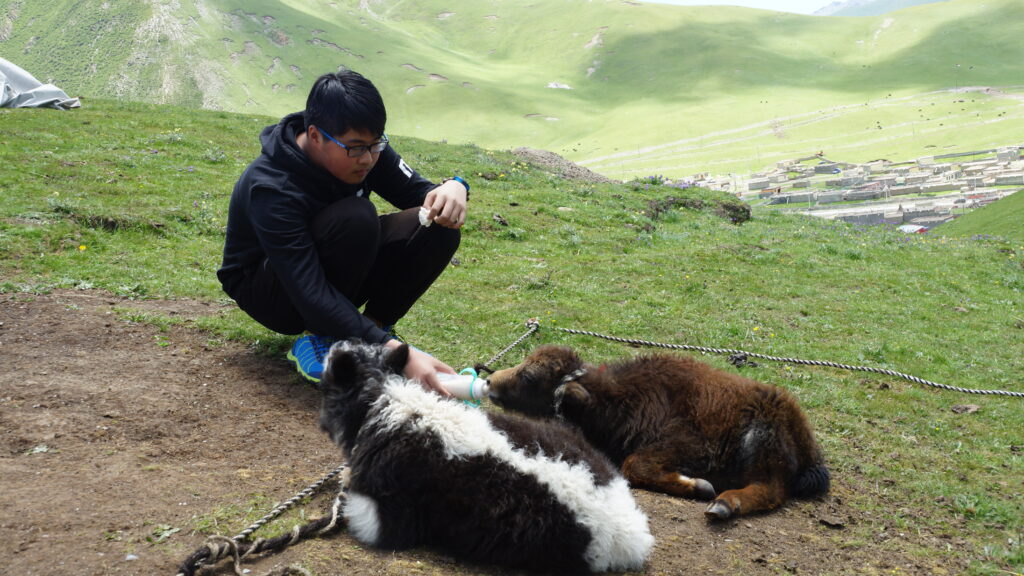 Picture of Me Feeding the Cubs
Picture of Me Feeding the Cubs
During the weekends, we often drove to further places with the entire class. We would bring food, blankets and relax near the rivers. We played and forgot about the existence of time. We drank Red Bull as a daily beverage (which tastes sweeter in China than in other countries to accommodate people’s taste) because the air was significantly less saturated with oxygen in the plateau.
We also visited an elementary school in a nearby county. I originally thought of internet pictures of run-down school buildings in poor places and imagined the school to be exactly the same. However, when the principal took us for a tour (the school was closed during the summer break and everyone went home), I realized that I could not be more wrong. The school buildings (at lease a dozen) were huge and clean, and everything including gyms, 400-meter running tracks and sport equipment were so outright that it could compete with schools in the cities. It really shows that how resources are used to support education and development in rural areas.
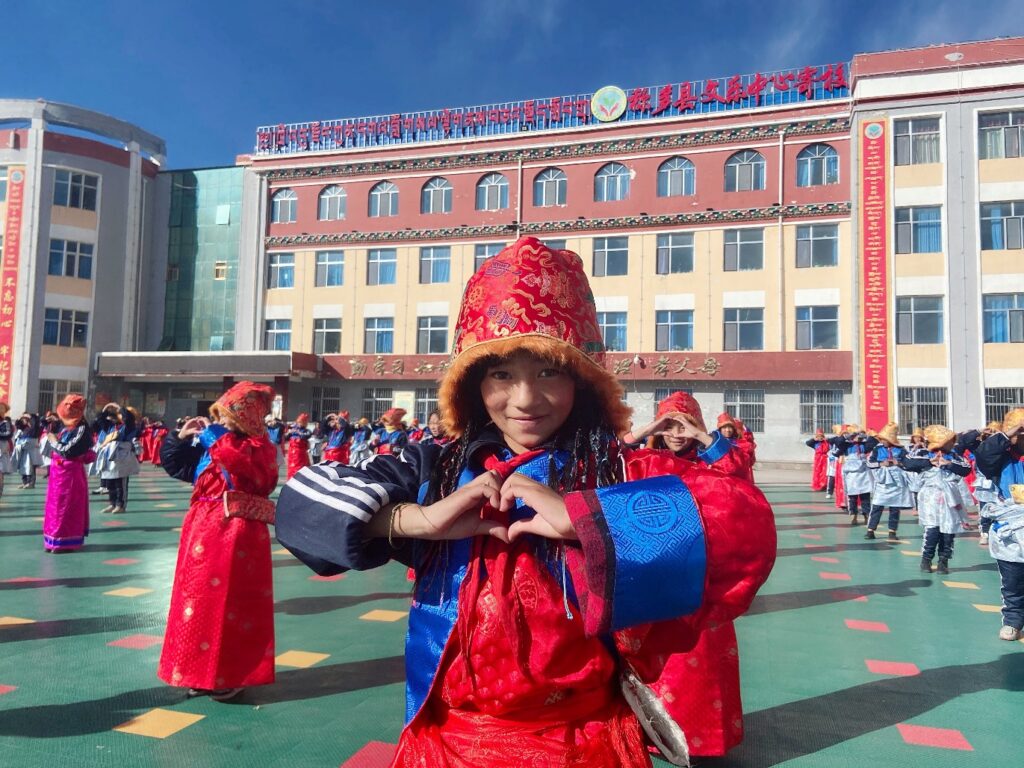
Photo of the School from link
Leaving, Thoughts & Conclusions
One month passed, and it was time for us to leave. The English lesson was successful and everyone was able to speak a little English and communicate with simple, everyday sentences. Their math was also improved, thanks to the Swedish couple. However, in my opinion, I was the one who learned the most. I have changed so much. I discovered how I was able to endure tough conditions; I socialized a lot and enjoyed spending time with others (from a different culture) and was really happy that people in relatively undeveloped places are still having sufficient earnings and support for their lives.
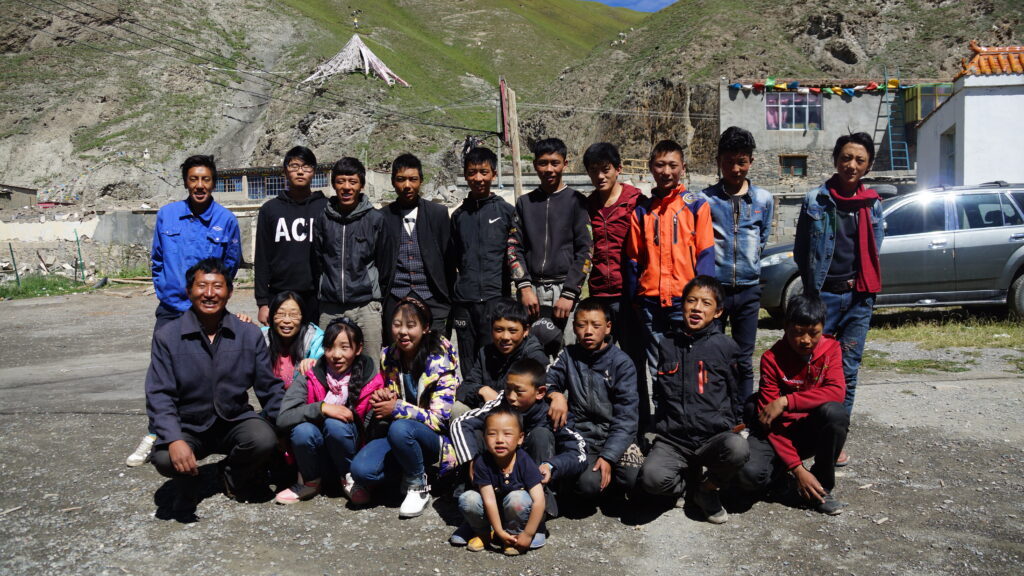 Photo of Me With the Students
Photo of Me With the Students
Overall, the experience was incredibly pleasant and if someone tells me that I can go there once again in the future, I will not hesitate to jump into the bus.
